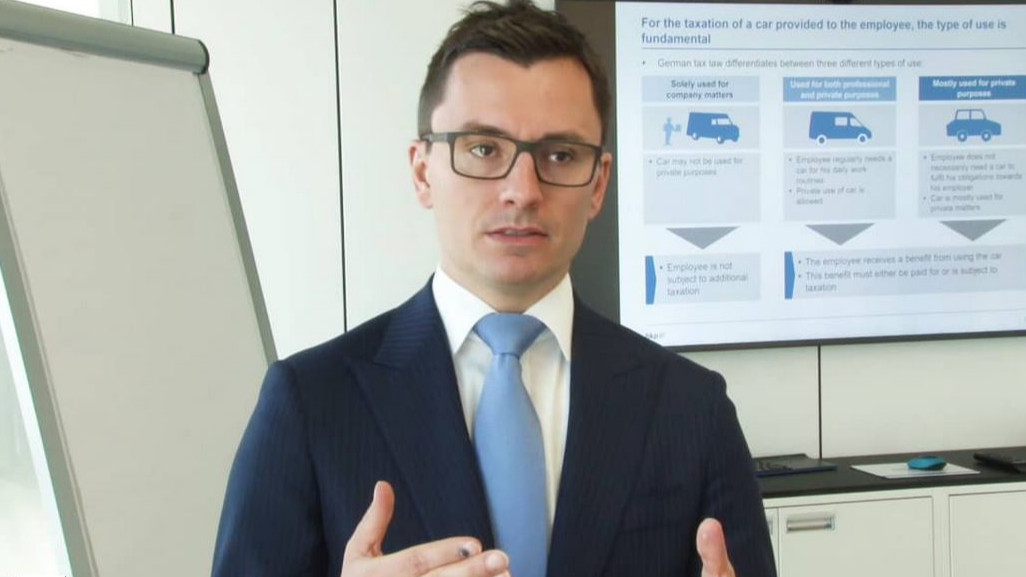Herr Schlichting, Herr Voggeser, vielen Dank für das Gespräch.

Carsten Schlichting begann seine berufliche Laufbahn 1977 bei einer Behörde der Freien und Hansestadt Hamburg. 1980 wechselte er zum Fraunhofer-Institut für Arbeitswirtschaft und Organisation (IAO), anschließend war er einige Jahre bei der Consulectra Unternehmensberatung für Projekte in den Bereichen Performance Management, Stellenbeschreibung/Stellenbewertung und Vergütung verantwortlich.
1986 erfolgte der Wechsel zur Robert Bosch GmbH. Dort war er in operativen Personalfunktionen auf Standortebene und in der Zentrale tätig, hatte Verantwortung für die Führungskräfteweiterbildung und war bis zu seinem Vertragsende 2012 insgesamt 10 Jahre für die konzernweite Führungskräfteentwicklung und Vergütung zuständig. Außerdem war er einige Jahre bei Bosch in USA tätig und koordinierte seit 2005 zusätzlich die HR-Arbeit in Europa.
Carsten Schlichting bringt umfassende Erfahrungen vor allem über das Zusammenwirken der Personalinstrumente und -prozesse in internationalen Netzwerken und Matrixorganisationen mit. Sein besonderes Interesse gilt der Verknüpfung von Talentmanagement, Grading und Vergütungsmodellen.
Carsten Schlichting begann seine berufliche Laufbahn 1977 bei einer Behörde der Freien und Hansestadt Hamburg. 1980 wechselte er zum Fraunhofer-Institut für Arbeitswirtschaft und Organisation (IAO), anschließend war er einige Jahre bei der Consulectra Unternehmensberatung für Projekte in den Bereichen Performance Management, Stellenbeschreibung/Stellenbewertung und Vergütung verantwortlich.
1986 erfolgte der Wechsel zur Robert Bosch GmbH. Dort war er in operativen Personalfunktionen auf Standortebene und in der Zentrale tätig, hatte Verantwortung für die Führungskräfteweiterbildung und war bis zu seinem Vertragsende 2012 insgesamt 10 Jahre für die konzernweite Führungskräfteentwicklung und Vergütung zuständig. Außerdem war er einige Jahre bei Bosch in USA tätig und koordinierte seit 2005 zusätzlich die HR-Arbeit in Europa.
Carsten Schlichting bringt umfassende Erfahrungen vor allem über das Zusammenwirken der Personalinstrumente und -prozesse in internationalen Netzwerken und Matrixorganisationen mit. Sein besonderes Interesse gilt der Verknüpfung von Talentmanagement, Grading und Vergütungsmodellen.

David Voggeser ist seit Anfang 2011 für die hkp/// group tätig und berät Unternehmen u.a. bei der Konzeption und Implementierung von Vergütungssystemen und Funktionsbewertung.
Seine Beratungsmandate reichen dabei von der Unterstützung von Start-ups bis hin zu globalen, langfristigen Projekten z. B. im Rahmen von IPO-Umsetzungen. Ein weiterer Schwerpunkt liegt in den Bereichen Mitarbeiterbeteiligung, externe Vergütungsvergleiche sowie Dienstwagenrichtlinien.
David Voggeser ist ein gefragter Referent auf Fachveranstaltungen und Autor zahlreicher Studien, u.a. des Global Equity Insight Survey, der weltweit umfassendsten Studie zum Thema aktienbasierte Vergütung und Mitarbeiterbeteiligung. Er verantwortet zudem den hkp/// group Top Management Survey.
David Voggeser ist seit Anfang 2011 für die hkp/// group tätig und berät Unternehmen u.a. bei der Konzeption und Implementierung von Vergütungssystemen und Funktionsbewertung.
Seine Beratungsmandate reichen dabei von der Unterstützung von Start-ups bis hin zu globalen, langfristigen Projekten z. B. im Rahmen von IPO-Umsetzungen. Ein weiterer Schwerpunkt liegt in den Bereichen Mitarbeiterbeteiligung, externe Vergütungsvergleiche sowie Dienstwagenrichtlinien.
David Voggeser ist ein gefragter Referent auf Fachveranstaltungen und Autor zahlreicher Studien, u.a. des Global Equity Insight Survey, der weltweit umfassendsten Studie zum Thema aktienbasierte Vergütung und Mitarbeiterbeteiligung. Er verantwortet zudem den hkp/// group Top Management Survey.


Dienstwagen werden häufig an Vielfahrer vergeben, besitzen aber auch eine hohe Attraktivität als Statussymbol. Worauf kommt es bei der Validierung und Neugestaltung von Dienstwagenregelungen an?
05. Januar 2017


Was sind die zentralen Herausforderungen der Corporate Governance im Spannungsfeld von Transformation und Nachhaltigkeit? Videostatements im Kontext unserer Konferenz zu ebendieser Frage liefern unterschiedliche Perspektiven.

Eine faire Vergütung in Unternehmen gewinnt in der gesellschaftlichen Debatte zunehmend an Bedeutung. Das Grading hilft Arbeitgebern dabei, diskriminierungsfreie Vergütungsstrukturen sicherzustellen.

Kosten- und Prozessoptimierung, Umstrukturierung sowie Personalabbau sind in der Wirtschaftskrise zentrale Schlagworte. Gleichzeitig gilt es, erfolgskritische Talente zu halten. Die Retention Management Toolbox hilft Ihnen dabei.